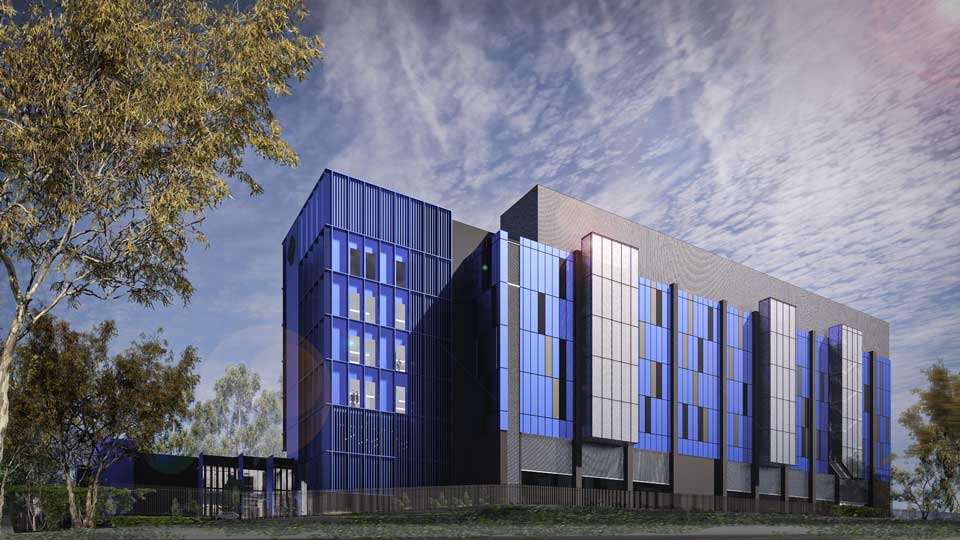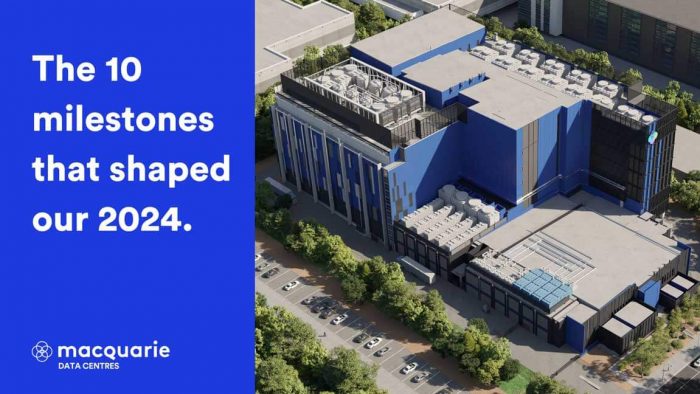AI’s sustainability opportunity for data centres

AI will have a profound impact on every person, in every company, in every industry. This big AI bang will lead to a data explosion like we’ve never seen before. At the very heart of it are data centres, which will power the AI revolution.
I’ve seen lots of discourse around the new sustainability challenges AI will bring, but what is often overlooked is the sustainability opportunities AI presents. Because, on the one hand, the data-intensive workloads produced by AI training and inferencing will see power consumption rise further. On the other, the technology itself will transform industry efficiency and offer new innovative solutions to fight climate change. This catch-22 was captured well by a study in Nature Communications which found that while AI could inhibit 59 of the United Nations Sustainable Development targets, it could also concurrently enable the accomplishment of 134 of them1.
Operational efficiency and environmental sustainability go hand in hand.
Operating efficiently not only benefits the environment, it also reduce costs. A true win-win scenario. AI has the ability to make infrastructure more efficient through real-time insights on energy and cooling consumption. A meta-analysis of industrial AI-applications found that AI-assisted HVAC systems (Heating, Ventilation and Air Conditioning) can achieve energy savings benefits of up to 25%2. By analysing data on energy usage and adjusting cooling and other settings accordingly, AI could help data centres save energy and drive down power usage effectiveness (PUE) numbers even further. For example, when Google first applied DeepMind’s machine learning to their own data centers, they managed to reduce the amount of energy used for cooling by up to 40 percent.3
Real-time insights from predictive maintenance could extend the life expectancy of data centre plant and equipment which would reduce the amount of waste going to landfill and eliminate the environmental impact of creating replacements. In fact, the Deloitte Analytics Institute found that predictive maintenance could reduce machine breakdown in manufacturing facilities by 70%4. Extending the life expectancy of data centre equipment not only reduces waste, it would also reduces overall costs for data center operators, another win-win.
The time taken for AI to produce the hundreds of millions, potentially billions, of simple math calculations for it’s learning is being reduced significantly by specialised hardware including GPUs (graphics processing units) and TPUs (tensor processing units). Methods such as liquid cooling and direct-to-chip cooling are gaining traction to keep the high-density infrastructure AI needs cool. These new technologies, like Submer’s immersion cooling tanks currently in operation at Macquarie Data Centres Macquarie Park Data Centre Campus are revolutionising efficiency in the industry and leading to better environmental outcomes.
It’s important the industry is acutely aware of these trends and that data centre operators build their facilities with sustainability in mind while enabling new technologies like AI. At Macquarie Data Centres, we recently unveiled expansion plans to supercharge our next data centre, IC3 Super West in Sydney’s north zone. The up-to 45MW facility is being purpose built for high densities and multi-megawatt power requirements of AI chip and server infrastructure. The facility will also have the cooling requirements to match by optimising the latest in both air and liquid cooling technologies.
Macquarie Data Centres continues to grow.
Our digital footprint continues to grow and so does its impact on the environment. However, data centres are the most efficient and sustainable environment for running the digital economy.
The onus to protect the environment in the AI era doesn’t rest with the industry and its partners alone. Governments across the globe can support the technology industry in achieving environmental, social and governance (ESG) goals by encouraging the adoption of sustainable practices through policy changes and financial incentives including grants.
Thinking bigger, governments need to prioritise investment into renewable energy. This will provide the digital world with conscious free consumption, sustainable computing.
In Australia, for example, the Federal Government has recently indicated its intent to support more renewable energy, including plans to increase its supply in the national grid. The Rewiring the Nation plan aims to increase the renewables share of the National Electricity Market (NEM) to 82 per cent by 2030.
Organisations leveraging data centre resources have an important role to play too. Hyperscalers, clouds and governments need to seek out data centre partners flexible enough to adapt to new technologies like AI, and that maximise efficiency to run it sustainably.
It’s wonderful to see new technologies such as AI accelerate innovation and solve some of the world’s biggest problems. As the custodians of this technology, it’s important to work together with our customers and governments to continue fuelling this innovation in the most ethical and sustainable way.
Read more about our colocation services in Sydney and Canberra.
Read more about our data centres in Sydney, Macquarie Park, and Canberra.
References.
- Vinuesa, R., Azizpour, H., Leite, I. et al. The role of artificial intelligence in achieving the Sustainable Development Goals. Nat Commun 11, 233 (2020).
- Da-sheng Lee, Yan-Tang Chen, Shih-Lung Chao, Universal workflow of artificial intelligence for energy saving, Energy Reports, Volume 8, 2022, Pages 1602-1633, ISSN 2352-4847,
- Evans, R., & Gao, J. (2016, July 20). DeepMind AI reduces energy used for cooling Google data centers by 40%. Google
- Deloitte Analytics Institute. (2017). Predictive maintenance: Taking pro-active measures based on advanced data analytics to predict and avoid machine failure.




